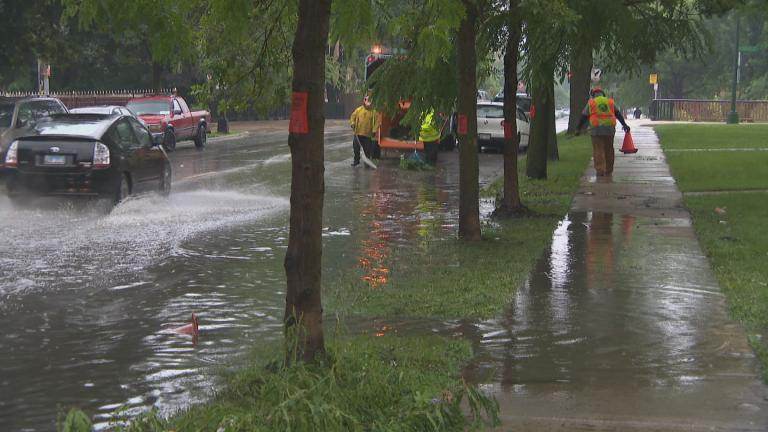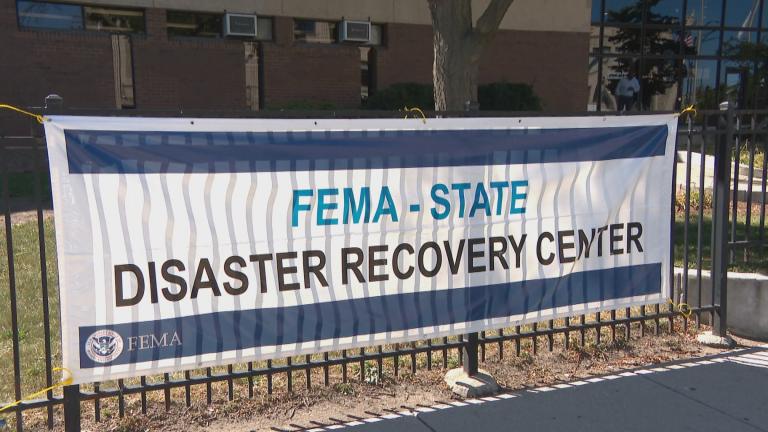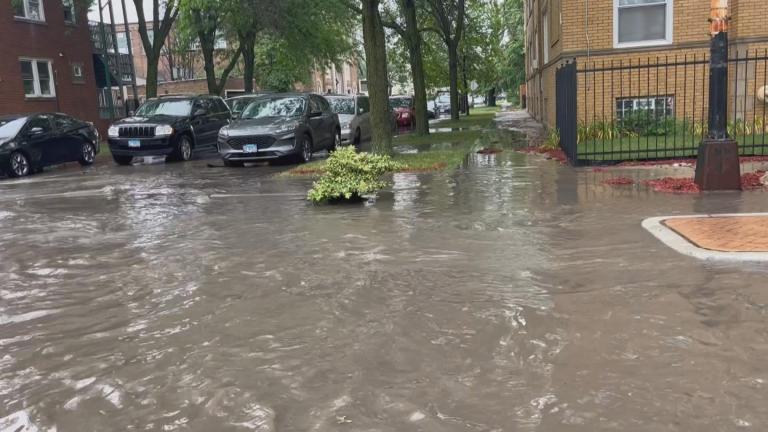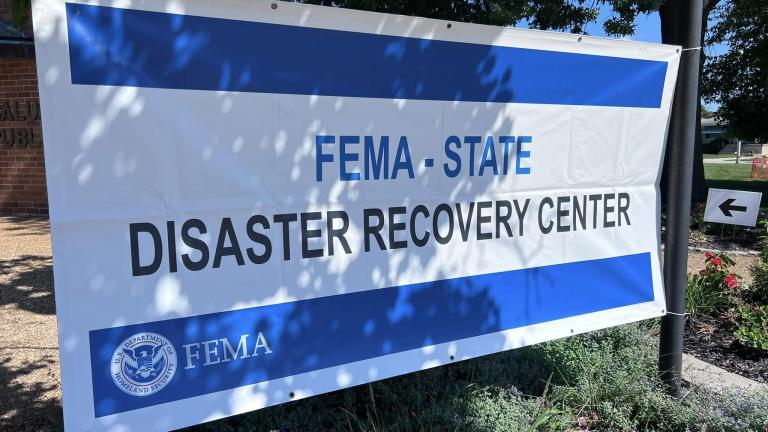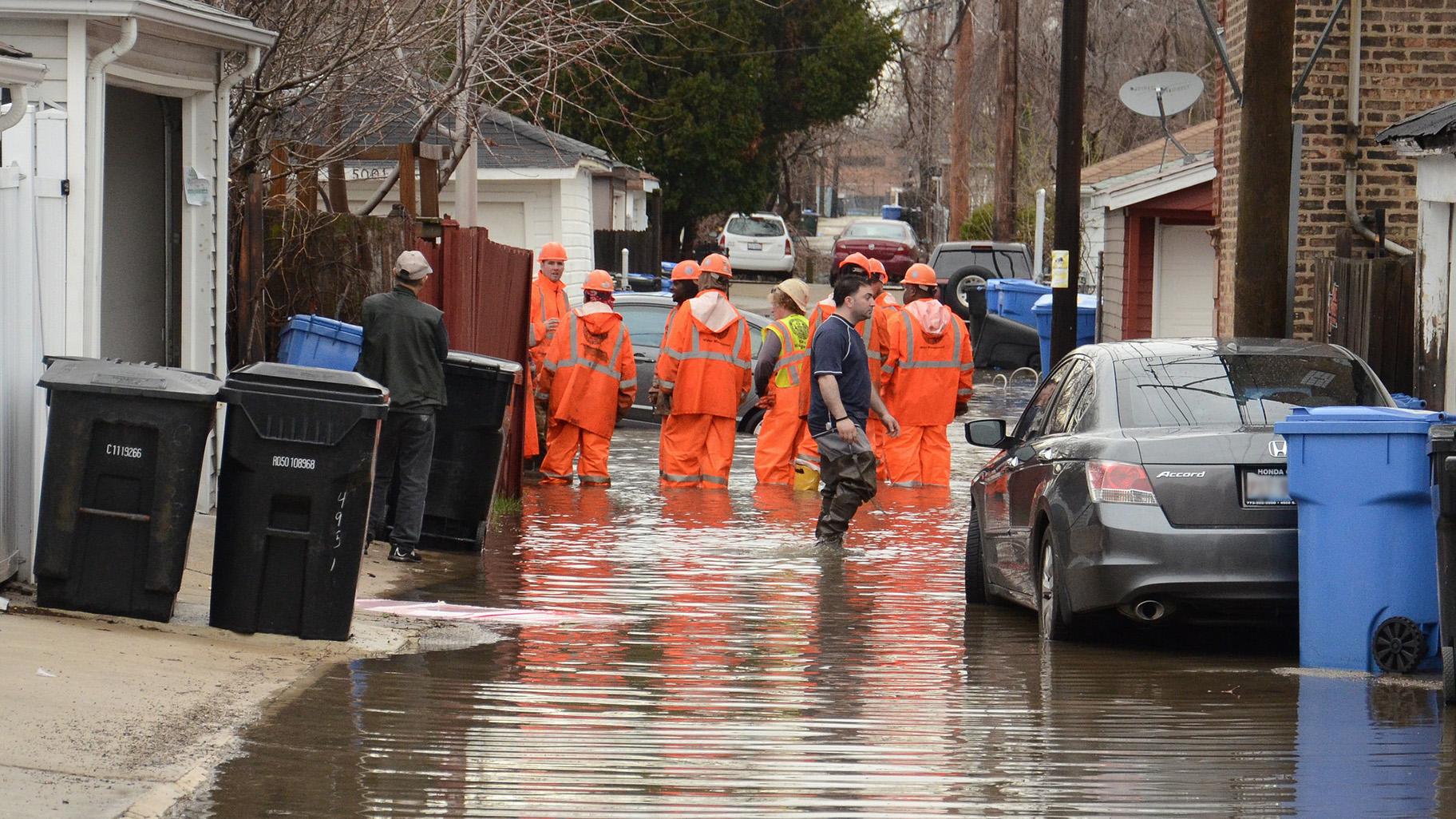 Flooding in Chicago’s Albany Park neighborhood on April 18, 2013. (Center for Neighborhood Technology / Flickr)
Flooding in Chicago’s Albany Park neighborhood on April 18, 2013. (Center for Neighborhood Technology / Flickr)
With extreme weather events fueled by climate change on the rise, a new report assesses the toll of the costliest and most frequent type of natural disaster facing the U.S.: flooding.
From 2000 to 2018, flooding in the U.S. caused more than 6,200 deaths and $830 billion in economic losses, according to the report by the nonprofit American Geophysical Union.
Using data from the National Oceanic and Atmospheric Administration, the organization evaluated three types of flooding – flooding due to hurricanes, floods in the central U.S. and coastal flooding – along with the science-based approaches needed to mitigate their impact.
The report includes data specific to Illinois, which experienced more than 1,500 flood events from 2000 to 2018 – an average of 1.5 floods per week – resulting in $3 billion in property damages.
The findings are particularly timely for residents in Illinois, where steady rain this spring resulted in the state’s worst flooding in more than 25 years, according to the Illinois Emergency Management Agency. The near-record flooding forced Illinois farmers to delay planting spring crops like corn and soybean, and prompted the U.S. Department of Agriculture to declare an agriculture disaster in the state. The heavy rain also tested stormwater systems in the Chicago area, which saw flooding during the wettest May on record for the city.
Chris McEntee, AGU’s executive director, said that flooding caused by storm surges from hurricanes in coastal areas often receives the most attention.
“Those are the things that get the national news a lot,” McEntee said. “But at the same time, urban flooding in general is a serious problem throughout the U.S.”
McEntee said AGU examined insurance claims data from Cook County and found that just as many claims came from outside of areas identified as a flood plain compared to locations within flood plains. This finding means that the prevailing thinking – manage the flood plain in order to manage flooding – does not address the issue of urban flooding in cities like Chicago, McEntee said.
Although Illinois offers a recent example of the toll caused by floods, the report notes that no state is spared from the impact of flooding. According to the report, flash flooding along rivers and streams is the second leading cause of death linked to extreme weather in the U.S. Additionally, there is an increase in coastal flooding because of rising sea levels influenced by global warming.
The report states that scientists need more funding from both federal and local governments to develop solutions that help mitigate the effects of flooding. For example, McEntee said the National Weather Service has had about 400 vacant positions for an extended period of time.
“That leads to extra hours, extra stress for those that are still in those positions,” McEntee said. “It leads to low morale.”
McEntee says agencies like NOAA and the U.S. Geological Survey also need additional funding to maintain satellites and models that allow officials to warn the public of impending storms and other extreme weather events.
“The climate’s changing, and if we don’t keep up [funding], we’re not going to be able to keep up these predictive capabilities and warning systems that we’ve become accustomed to,” McEntee said.
Contact Alex Ruppenthal: @arupp | (773) 509-5623 | [email protected]
Related stories:
27 Illinois Counties Eligible for Federal Aid After Near-Record Flooding
USDA Declares Agriculture Disaster in Illinois Following Floods
Pritzker Announces Help for Flood-Hit Farmers, Aims for Emergency Declaration

